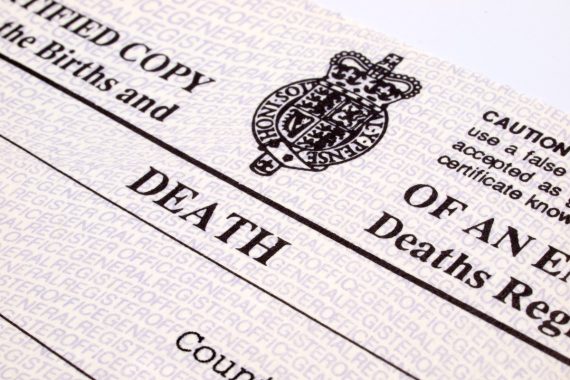GPs to share deceased patients’ records with medical examiners from April

GP practices must be ready to share records of deceased patients with their local medical examiner officer by April next year, NHS England has said.
The Health and Care Bill introduced a statutory medical examiner system within the NHS rather than local authorities in England, so that all deaths not involving a coroner can be scrutinised.
This means GP practices will need to grant medical examiners access to patient records for every death where a coroner is not involved.
A letter was sent to GP practices on 11 July 2022, co-signed by national medical examiner Dr Alan Fletcher, NHS national director of patient safety Dr Aidan Fowler and national medical director Professor Sir Steve Powis.
The letter said: ‘All NHS organisations should have processes to facilitate the work of medical examiners in place by 31 March 2023.
‘To do this will require positive engagement across all healthcare systems to overcome practical and logistical challenges.’
In terms of what GP practices need to do, the letter said: ‘All healthcare providers need to develop and implement arrangements to share the records of deceased patients with their local medical examiner office.’
Primary care minister at the time when plans were announced, Maria Caulfield, said the medical examiner system will enhance detection of ‘poor practice’ among GPs.
She said: ‘The medical examiner system will introduce an additional layer of scrutiny of the cause of death by the medical practitioner, improving the quality and accuracy of the medical certificate of cause of death and thereby informing the national data on mortality and patient safety’.
Ms Caulfield said it would ‘increase transparency and facilitate discussions with the bereaved about any concerns they may have, providing new levels of scrutiny to improve detection of criminal activity or poor practice’.
She added: ‘After the statutory medical examiner system has been introduced, all non-coronial deaths will be scrutinised by a medical examiner, for both burials and cremations.’
Ms Caulfield has since been replaced by James Morris.
Visit Pulse Reference for details on 140 symptoms, including easily searchable symptoms and categories, offering you a free platform to check symptoms and receive potential diagnoses during consultations.
Related Articles
READERS' COMMENTS [3]
Please note, only GPs are permitted to add comments to articles










Dear All,
This is an interesting development. The enabling legislation does not change any aspect of the 1953 act that requires every doctor attending the patient during their last illness to supply an MCCD recording to the best of their knowledge their opinion as to the cause of death.
My opinion is my opinion. if a medical examiner has a different view then in my opinion, they can issue their own MCCD or raise the matter with the Coroner. I shall continue to complete MCCDs as before.
Regards
Paul C
ps I thought that one of CQC’s roles was to catch the Shipman’s among us, is this nonsensical additional bureaocratic burden not a sign that they have failed?
We have been involved in a pilot for medical examiner scrutiny of the community deaths of our patients. It has actually been really helpful and not that onerous, and in return we see the scrutinies of our patients who die in hospital. This often helps to answer questions from staff and relatives as well as enhancing our learning. It also means they will issue MCCDs for us if palliative patients die a few hours after discharge prior to being seen by a GP.
Joanne – could you tell us some more about who these new ” the medical examiners (ME) ” are – and where they have come from?
Who are they ? and what qualifications do they have ? You suggest that in certain situations an ME could sign a MCCD- which suggests they must already be registered medical practitioners . So- what were they working at before becoming ME’s ?- what have they given up doing to free up their time for this new role and who employs/pays them ?
An MCCD is a legal document and is much more than a statement confirming death and its likely causation . It is the must have document to be presented to the Registrar for the death to be fully registered . Without this registration organising a funeral / cremation is impossible and also impossible for the deceased’s estate to be progressed.
I agree with Paul Cundy’s point . If I was uncertain about a specific death I would have discussed the case with the Coroner or his Officer. For the proposed system to work the ME’s are going to need to be involved before the MCCD is issued- so how available and accessible are they going to be ? Hope you can enlighten us some more.